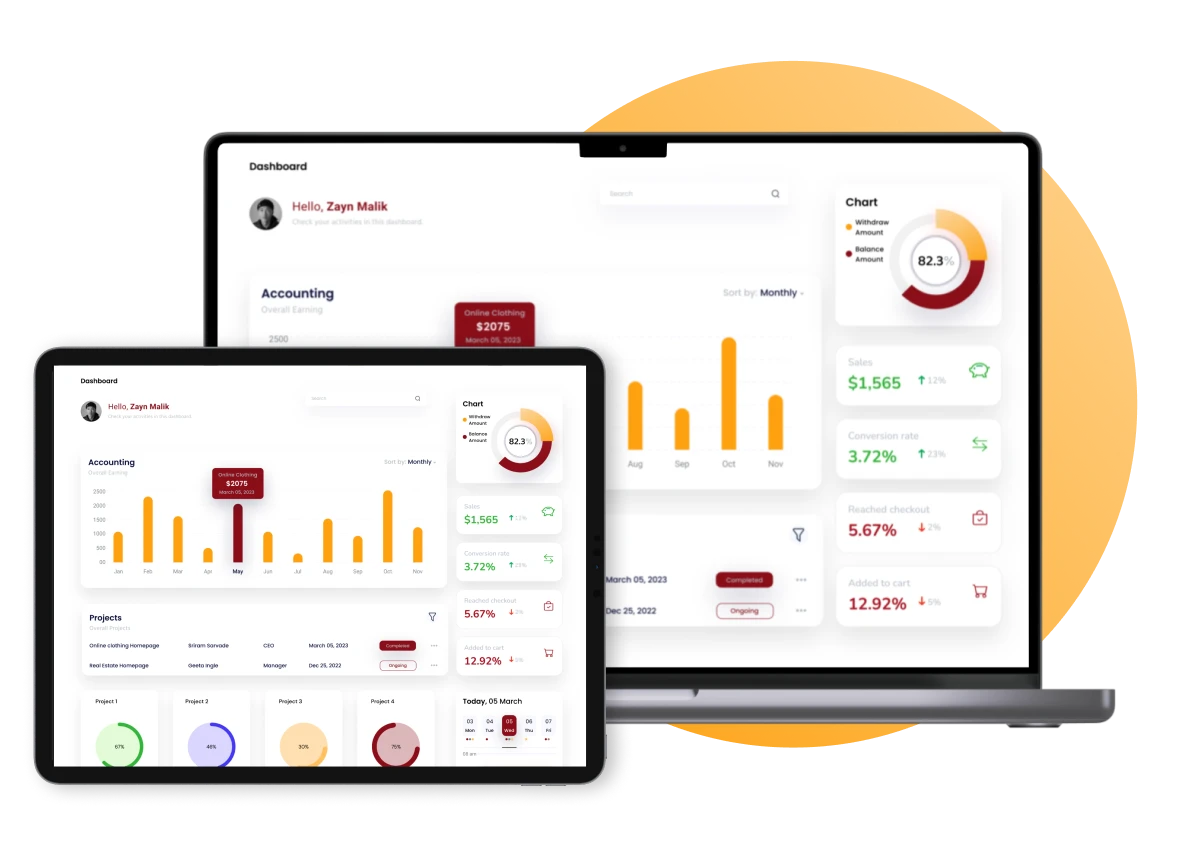Managing a financial transaction in your business doesn’t need to be complicated. Whether it’s cash payments, credit deals, or internal transfers, you can easily handle these tasks with the right approach.
Don’t worry. Let’s break down how to manage these transactions smoothly and efficiently. We’ll show you how to track them accurately and efficiently, helping you stay organized and in control. Keep reading to learn more!
Key Takeaways
|
Table of Contents
What is a Financial Transaction?
A financial transaction is any exchange of money or assets between two or more parties. It’s important because it shows how money moves in and out of a business or individual’s finances, which can be tracked and managed easily with an accounting system.
Understanding financial transactions is key to staying organized and managing your finances effectively. With proper tracking and financial records, you can make informed decisions and ensure accurate records for your business or personal finances.
How Financial Transactions Are Recorded

In accounting, businesses use two main methods to record financial transactions: accrual accounting and cash accounting. These methods are:
- Accrual Accounting
Accrual accounting records all financial transactions when they happen, even if payment is delayed. This method works well for businesses with long-term projects or multiple credit transactions. - Cash Accounting
Cash accounting records transactions only when money changes hands. This method is simpler and often preferred by smaller businesses or those with fewer transactions.
Both methods play a key role in accurate financial management. By using the right tools, like accounting software Philippines, businesses can manage financial transactions more easily and effectively.
Types of Financial Transactions
| Transaction Types | Definition |
|---|---|
| Cash Transaction | Cash transactions are immediate exchanges of money for goods or services, like paying for groceries. |
| Credit Transaction | Credit transactions involve deferred payments, such as using a credit card or financing a purchase. |
| Internal vs. External | Internal transactions occur within a business, like transferring funds between departments, while external transactions involve outside parties. |
Transaction Processes and Methods
Knowing the different ways to handle financial transactions can help businesses stay organized and efficient. These methods ensure that money moves securely and accurately, which is key for smooth operations. They are:
- ACH Transactions: They are electronic payments that move money between bank accounts. They’re commonly used for payroll, bill payments, and direct deposits. With ACH, businesses can automate payments, saving time and reducing errors.
- Pending and Canceled Transactions: This happens when you make payments but they aren’t completed yet, often due to delays. Canceled transactions occur when you reverse a payment, like during a refund or dispute.
- Wire Transfers: It allows quick and secure transfers of funds between banks. They are often used for large transactions, especially those made internationally.
- Mobile Payments: It lets customers pay using apps or contactless technology. They’re convenient and fast, helping businesses handle payments easily.
Using these transaction methods and a comprehensive accounting system can simplify managing your business finances. It helps ensure payments are processed smoothly, records stay clear, and you can make better financial decisions.
The Role of Financial Transaction in Compliance
Financial transactions are key in keeping your business compliant with laws and regulations. By tracking and reporting every transaction properly, you can avoid legal problems and ensure your business stays on the right side of the law.
Anti-money laundering (AML) standards
Anti-Money Laundering (AML) standards help detect and prevent illegal financial activities like money laundering. These regulations require businesses to monitor transactions closely and report suspicious activities to authorities. Following AML standards keeps your business safe from fines and legal issues.
PFRS and Global financial compliance
Businesses also need to follow local and international financial reporting standards, such as the Philippine Financial Reporting Standards (PFRS) and International Financial Reporting Standards (IFRS). These standards ensure accurate and transparent financial reporting, helping businesses stay compliant both locally and globally.
Common Issues with Financial Transactions
Managing financial transactions can be challenging due to various common issues businesses face. Discrepancies, fraud, disputes, and delayed transactions can disrupt operations and impact financial accuracy. They are:
- Discrepancies in financial records: These can arise from data entry errors or timing differences between transactions. Such discrepancies can lead to inaccurate financial reports, making reconciliation difficult.
- Fraudulent activities: Fraud can occur through unauthorized payments or false reporting. If left undetected, fraud can result in significant financial loss and harm your business’s reputation.
- Payment disputes: These disputes often arise due to misunderstandings or errors between businesses and customers. They can delay cash flow and strain business relationships, affecting overall financial health.
- Delayed transactions: Processing errors or miscommunication between involved parties can cause transaction delays. These delays can disrupt business operations and affect cash flow.
To solve these issues, businesses should focus on establishing clear processes, regularly reconciling accounts, and using fraud detection tools are key steps to minimize discrepancies and disputes. An accounting program can help streamline these processes, ensuring accuracy and reducing errors.
Manage Your Business Financial Transactions with HashMicro’s Accounting Software

HashMicro’s accounting software simplifies managing your business’s financial transactions. It automates key processes and helps keep your financial records accurate and easy to track. With features designed to save you time and reduce errors, you can focus more on growing your business while staying in control of your finances.
Some of its features are:
- Bank Integrations for Auto Reconciliation: Automatically match your bank transactions with your records, saving time and minimizing mistakes.
- Profit & Loss vs Budget & Forecast: Compare actual results with your budget to stay on track and quickly spot areas needing attention.
- Multi-level Analytical Reports: Gain deeper insights by analyzing financial data for each department, project, or branch, helping you make informed decisions.
- Cashflow Reports: Get real-time cash flow reports to better manage your liquidity and plan for future expenses or investments.
With these features, HashMicro’s accounting software helps you manage financial transactions smoothly, ensuring accuracy, saving you time, and giving you the insights you need to run a successful business.
Conclusion
Managing financial transactions is vital for smooth business operations. By using the right methods and tools, you can stay organized, avoid errors, and ensure accurate financial records.
HashMicro’s accounting software simplifies managing transactions, improving accuracy and saving time. You can track financial data, spot discrepancies, and gain insights for better decision-making. Try the free demo today to see how it can transform your financial management!

Frequently Asked Questions
-
What are the 4 financial transactions?
The four main types of financial transactions are cash transactions, credit transactions, internal transactions, and external transactions. Each involves different payment methods and processes that businesses need to manage effectively.
-
What is the financial transaction process?
The financial transaction process involves initiating, recording, verifying, and finalizing transactions. Businesses use accounting systems to ensure accuracy, track transactions, and maintain proper financial records.
-
What is a transaction in financial accounting?
A financial transaction is any exchange of money or assets between two or more parties. It is recorded in accounting books to track financial activities and maintain accurate business records.





































